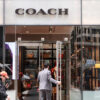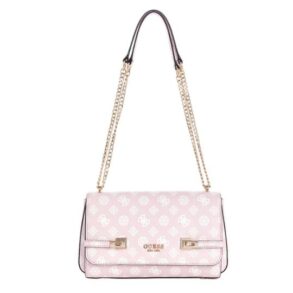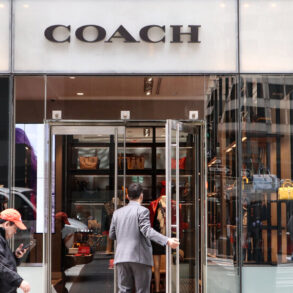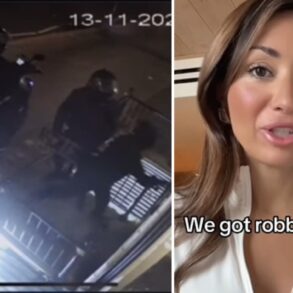WILMINGTON, Del. – Two weeks after seizing a shipment of counterfeit Lululemon belt bags, U.S. Customs and Border Protection officers in Wilmington, Del., seized a shipment of counterfeit designer brand name handbags. The counterfeit handbags, had they been genuine, would have been valued at $151,431.
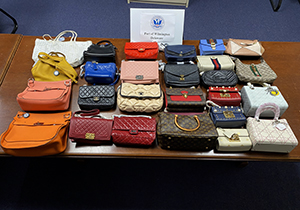
CBP officers initially inspected the shipment on September 4 after it arrived via express air cargo from China. The shipment, which was destined to an address in Newark, Del., consisted of 26 handbags bearing luxury brand names, such as Chanel, Goyard, Gucci, Hermes, Loewe, and Louis Vuitton. Officers suspected that the handbags may have been counterfeit and detained the shipment to verify the authenticity of the handbags’ trademarks.
CBP officers submitted product documentation and photographs to CBP’s trade experts at the Consumer Products and Mass Merchandising Center of Excellence and Expertise (CEE) for analysis. CBP’s trade experts verified that the handbags were counterfeit and subject to seizure pursuant to CBP’s statutory and regulatory authorities.
CBP officers seized the counterfeit handbags shipment on Friday.
Two weeks earlier, CBP officers in Wilmington seized 277 counterfeit Lululemon Everywhere Belt Bags, valued at nearly $13,000 had they been authentic.
The international trade in counterfeit consumer goods is illegal. It steals revenues from trademark holders, steals tax revenues from the government, funds transnational criminal organizations, and the unregulated products potentially threaten the health and safety of American consumers.
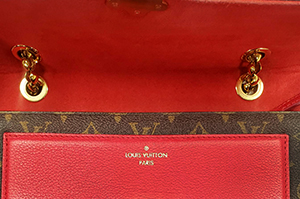
Counterfeiters often manufacture consumer goods using substandard materials and parts that either break prematurely or that could hurt consumers. Counterfeit consumer goods may also be sourced or manufactured in facilities that employ forced labor.
“Unscrupulous vendors that peddle counterfeit consumer goods continue to place their profits over your health and safety. Customs and Border Protection urges you to protect your families by purchasing authentic consumer products from reputable retailers,” said Erik Kelling, CBP’s Port Director for the Port of Wilmington.
For more information about the consequences and dangers often associated with the purchase of counterfeit goods visit CBP’s Truth Behind Counterfeits website.
CBP protects businesses and consumers every day through an aggressive Intellectual Property Rights (IPR) enforcement program. During fiscal year 2023, CBP made nearly 20,000 seizures with an estimated manufacturer’s suggested retail price worth over $2.76 billion, had the goods been genuine.
Media can search for additional enforcement details by viewing CBP’s IPR webpage or by viewing CBP’s IPR Dashboard and CBP’s Annual IPR Seizures Reports.
U.S. trademark and copyright owners can register with CBP to have their intellectual property protected at the border through the through the e-Recordation program (https://iprr.cbp.gov/s/).
CBP encourages anyone with information about counterfeit merchandise illegally imported into the United States to submit an e-Allegation. The e-Allegation system provides a means for the public to anonymously report to CBP any suspected violations of trade laws or regulations related to the importation of goods in the U.S.
CBP’s border security mission is led at our nation’s Ports of Entry by CBP officers and agriculture specialists from the Office of Field Operations. CBP screens international travelers and cargo and searches for illicit narcotics, unreported currency, weapons, counterfeit consumer goods, prohibited agriculture, invasive weeds and pests, and other illicit products that could potentially harm the American public, U.S. businesses, and our nation’s safety and economic vitality.
See what CBP accomplished during “A Typical Day” in 2023. Learn more at www.CBP.gov.
Follow the Director of CBP’s Baltimore Field Office on Twitter at @DFOBaltimore for breaking news, current events, human interest stories and photos, and CBP’s Office of Field Operations on Instagram at @cbpfieldops.


